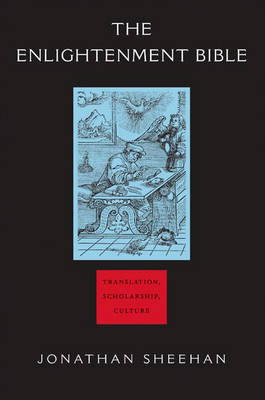How did the Bible survive the Enlightenment? In this book, Jonathan Sheehan shows how Protestant translators and scholars in the eighteenth century transformed the Bible from a book justified by theology to one justified by culture. In doing so, the Bible was made into the cornerstone of Western heritage and invested with meaning, authority, and significance even for a secular age. The Enlightenment Bible offers a new history of the Bible in the century of its greatest crisis and, in turn, a new vision of this century and its effects on religion. Although the Enlightenment has long symbolized the corrosive effects of modernity on religion, Sheehan shows how the Bible survived, and even thrived in this cradle of ostensible secularization. Indeed, in eighteenth-century Protestant Europe, biblical scholarship and translation became more vigorous and culturally significant than at any time since the Reformation. From across the theological spectrum, European scholars - especially German and English - exerted tremendous energies to rejuvenate the Bible, reinterpret its meaning, and reinvest it with new authority.
Poets, pedagogues, philosophers, literary critics, philologists, and historians together built a post-theological Bible, a monument for a new religious era. These literati forged the Bible into a cultural text, transforming the theological core of the Judeo-Christian tradition. In the end, the Enlightenment gave the Bible the power to endure the corrosive effects of modernity, not as a theological text but as the foundation of Western culture.
- ISBN10 0691118876
- ISBN13 9780691118871
- Publish Date 6 February 2005
- Publish Status Out of Print
- Out of Print 23 July 2013
- Publish Country US
- Imprint Princeton University Press
- Format Hardcover
- Pages 296
- Language English
- URL https://press.princeton.edu/titles/7976.html
